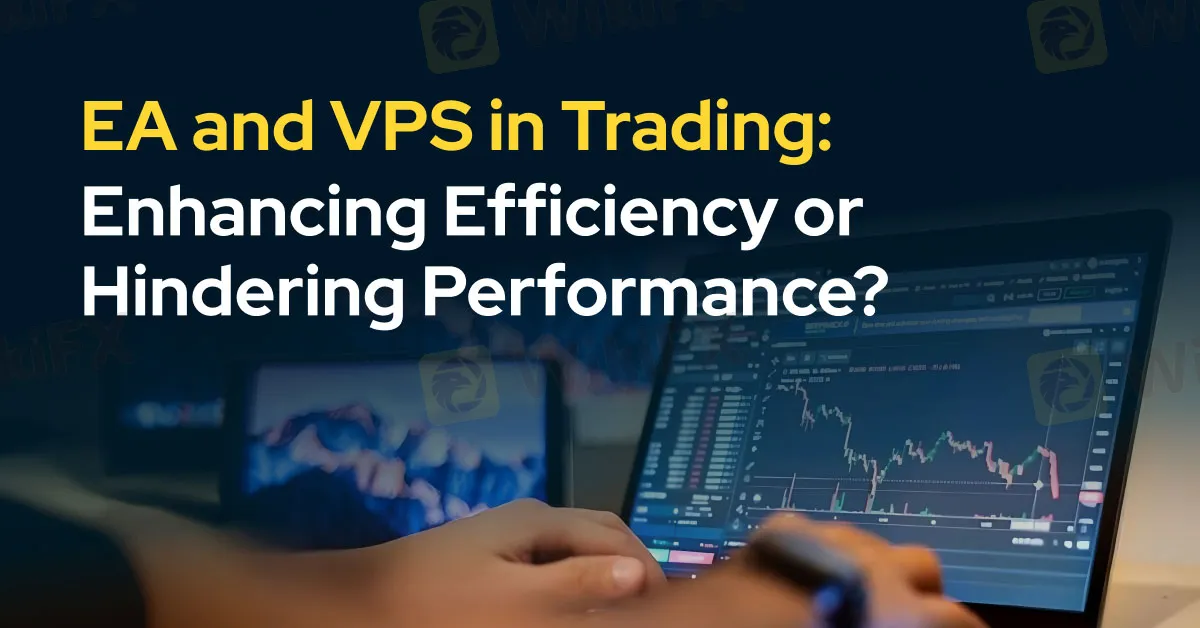简体中文
繁體中文
English
Pусский
日本語
ภาษาไทย
Tiếng Việt
Bahasa Indonesia
Español
हिन्दी
Filippiiniläinen
Français
Deutsch
Português
Türkçe
한국어
العربية
EA and VPS in Trading: Enhancing Efficiency or Hindering Performance?
Abstract:Among the various trading tools available, Expert Advisors (EAs) and Virtual Private Servers (VPS) stand out for their potential to provide significant advantages. However, like all powerful tools, they come with their own set of challenges and risks, making them a double-edged sword for traders.

Among the various trading tools available, Expert Advisors (EAs) and Virtual Private Servers (VPS) stand out for their potential to provide significant advantages. However, like all powerful tools, they come with their own set of challenges and risks, making them a double-edged sword for traders.

Expert Advisors, or EAs, are automated trading systems that execute trades based on predefined criteria. They are designed to remove emotional decision-making and operate with precision and speed, offering several benefits. EAs can analyse market data and execute trades much faster than a human could, potentially capturing opportunities in volatile markets more effectively. By sticking to a set of programmed rules, EAs ensure consistent trading behaviour, avoiding the pitfalls of human emotions like fear and greed. Unlike human traders, EAs can operate around the clock, taking advantage of market opportunities even when the trader is not actively monitoring the market.
Despite these advantages, EAs also present significant risks. EAs can be over-optimized for historical data, a practice known as “curve fitting,” which might not translate well into future market conditions. This can lead to poor performance in live trading. Markets are dynamic and constantly changing. An EA programmed with fixed rules may struggle to adapt to new market conditions, leading to significant losses. Additionally, EAs rely on technology, which means they are susceptible to software bugs, connectivity issues, and other technical failures that can disrupt trading activities.

Virtual Private Servers (VPS) are widely used in trading to secure internet connections and provide reliable access to trading platforms. They offer several benefits. VPS can provide a stable and secure environment for Expert Advisors (EAs) to operate, reducing the risk of downtime due to local internet issues and ensuring consistent execution of trades. By using a VPS located close to the broker's servers, traders can reduce latency, leading to faster trade execution. Additionally, a good VPS can provide a stable and consistent internet connection, crucial for executing trades efficiently and avoiding disruptions.
However, VPS also comes with their drawbacks. Using a VPS involves additional costs, which can eat into trading profits, especially for small-scale traders. Setting up and maintaining a VPS requires technical knowledge, which might be a barrier for some traders. Furthermore, not all VPS providers are equally reliable. Issues such as server downtime or slow performance can lead to missed trades and lost opportunities.
The key to leveraging EAs and VPS effectively lies in understanding their strengths and limitations. Traders should approach EAs with caution, ensuring they are well-tested in various market conditions and remain vigilant about their performance. Regular updates and adjustments to the EA's algorithms can help it adapt to changing market dynamics.
When it comes to VPS, selecting a reputable provider with low latency and high reliability is crucial. Traders should also consider the costs involved and ensure they have the technical skills to set up and maintain the server.
In summary, EAs and VPS can significantly enhance trading efficiency and performance when used wisely. However, they are not without risks. A balanced approach that includes thorough research, regular monitoring, and a keen awareness of the potential pitfalls can help traders harness the benefits of these tools while mitigating their downsides. As with any trading tool, the ultimate responsibility lies with the trader to use them judiciously and in alignment with their overall trading strategy.

Disclaimer:
The views in this article only represent the author's personal views, and do not constitute investment advice on this platform. This platform does not guarantee the accuracy, completeness and timeliness of the information in the article, and will not be liable for any loss caused by the use of or reliance on the information in the article.
Read more

Nonfarm Data Lifts Market Sentiment, U.S. Stocks Rebound Strongly
U.S. nonfarm payrolls for May slightly exceeded expectations, stabilizing investor sentiment and easing fears of a hard landing. This upbeat data sent U.S. equities broadly higher, led by tech stocks, with the Dow and S&P 500 posting significant gains. However, behind the optimism lies a fresh round of market debate over the Federal Reserve’s rate path, with uncertainty around inflation and interest rates remaining a key risk ahead.

OctaFX Flagged by Malaysian Authorities
OctaFX has been officially listed on warning lists by both Bank Negara Malaysia (BNM) and the Securities Commission Malaysia (SC). These alerts raise serious concerns about the broker’s status and whether it is legally allowed to operate in Malaysia.

Why Your Worst Enemy in Trading Might Be You
Be Honest With Yourself: Are You Slowly Destroying Your Trading Account?

TradingPRO: A Closer Look at Its Licences
In an industry where safety and transparency are essential, the regulatory status of online brokers has never been more important. For traders seeking to protect their capital, ensuring that a platform operates under recognised and stringent oversight can make all the difference. Keep reading to learn more about TradingPRO and its licenses.
WikiFX Broker
Latest News
SkyLine Guide 2025 Malaysia: 100 Esteemed Judges Successfully Assembled
Vantage Markets Review 2025: Trusted Forex and CFD Trading Since 2009
Why STARTRADER Is Popular Among Traders?
A Guide to Intraday Forex Trading You Can't Miss Out
CONSOB Blocks Access to 13 Unauthorized Investment Websites
TradingPRO: A Closer Look at Its Licences
The world could be facing another ‘China shock,’ but it comes with a silver-lining
New SEBI Regulations on Intraday Trading
Everything You need to know about Barath Trade
IronFX Broker Review 2025: A Comprehensive Analysis of Trustworthiness and Performance
Currency Calculator


